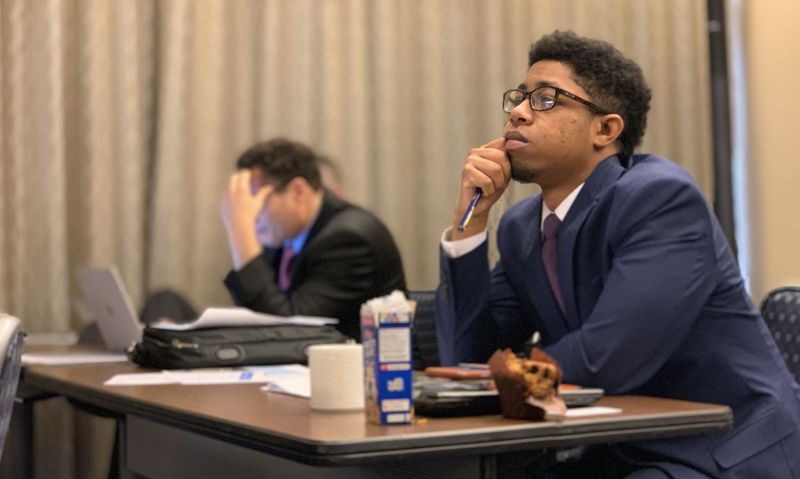
American Legion HR director said that those in the military are taught to be a part of a team, but that seeking employment is a time to stand out from others.
Members of the U.S. military are taught to blend in as part of a team. But when those same people leave the armed forces and look for employment in the civilian world, it’s time to put that mentality aside temporarily.
That’s the advice that was given to dozens of veteran job seekers by Rodney Rolland, American Legion National Headquarters Human Resources director, during a Feb. 22 résumé-writing workshop that kicked off the organization’s Washington Conference in the nation’s capital.
“In the military – and it’s huge with veterans – we are taught … everything we do is about looking the same,” said Rolland, a U.S. Marine Corps veteran. “When you look different, you’re probably in trouble. Outside the military, everything is about standing out. That’s part of the reason that sometimes veterans struggle. We adopt the team concept. That’s all we’re trained to do. A lot of times that’s how we apply for a job.
“It’s about separating yourself from everybody else. Sometimes we, as veterans, have a way of taking some things away from ourselves because that’s not the way we trained to do it. We’re not trained to outshine anybody. Be very confident as you put your résumé together.”
Rolland urged job seekers to keep their résumés under two pages. “If (employers) have to dig into your résumé to pull out things, you will hurt your ability to get a job,” he said. “If you have a five-page résumé, I would say that management will never get to your third page. In my opinion, your résumé shouldn’t be more than a page and a half. Definitely not more than two pages.”
Rolland said a résumé’s purpose is “to get you to the interview. Most HR people looking at your résumé are looking for the skills and abilities that fit the position they have open. Don’t try to put all (of your accomplishments) on the résumé. The more you put on the résumé, the more it fills up, and the less you increase your chance of actually getting to the interview.”
And when it comes to designing a résumé, Rolland said that don’t fall into fancy design traps. “You’re thinking that the HR person is going to look at it (as) special. They don’t,” he said. “The HR person is looking at that résumé compared to the job description.”
A panel discussion that followed the résumé workshop included representatives from Lockheed Martin, Amazon, the Transportation Security Administration and Hilton.
One of the panelists, Lockheed Martin Military Relations Project Manager David Wallace, said it’s important to share your particular skillset with potential employers, rather than saying “I can do anything.” He also stressed that rank doesn’t matter as much as skill when seeking a civilian job.
“We hire skillsets. We don’t hire rank,” said Wallace, who retired from the U.S. Navy in 2009 and is a member of American Legion Post 180 in Vienna, Va. “As much as I appreciate what you’ve earned, it doesn’t mean anything to us. I can hire somebody that has the same experience and skillset an E-6 (has) as an O-4 (has). And a lot of times that E-6 may have more hands-on experience in what I need over that O-4 who’s already moved into management and may be off of that skillset a little bit.”
And Amazon Senior Community Engagement Program Leader and retired Marine Corps Lt. Col. Raphael “Ralph” Hernandez said it’s important to know about a company before considering taking a job with it.
“You’re all eager to connect with a career opportunity,” advised Hernandez, who said he walked away from a six-figure salary after nine months because it wasn’t a good fit. “But really think about the culture of the organization you want to join. Culture is extremely important.”
- Careers

